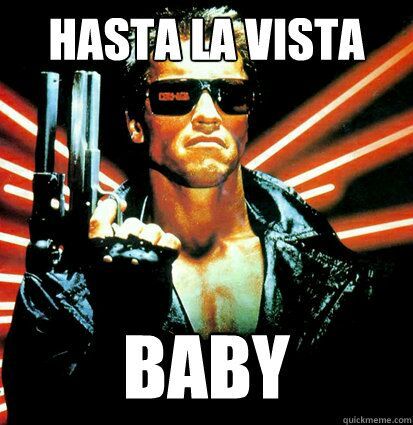There’s no industry-wide data on this, but whenever prime rate starts climbing, lenders tell us that at least 1 in 20 variable-rate borrowers lock in (convert) their variable rate to a fixed rate. And a good number of those borrowers are getting one stinky bum biscuit of a rate.
One poor mortgagor I spoke with recently asked his lender to lock in. He was quoted 3.14% on a 5-year fixed.
Meanwhile, brokers and other lenders are as much as 65 bps less for the same term with better features. His lender’s rate offer/insult—had he been drunk enough to accept it—could’ve cost him $5,000+ over three years on his $375,000 mortgage.
How to Get Stiffed
When you lock in a variable-rate mortgage to a fixed-rate mortgage, the rate you get is called the “conversion rate.” That’s lender-speak for “you’re about to wish you got a fixed rate to begin with.”
The conversion rate reflects three things:
- The fact that lenders know you don’t like the hassle of applying elsewhere.
- The fact that lenders know you don’t want to pay their penalty to leave.
- The fact that lenders incur some costs (related to processing, securitization, hedging, etc.).
As a result, variable-rate customers routinely get offered sub-par rates when locking in. We’re talking “special offer” rates in many cases, which are about as special as mouldy socks. We’ve seen some banks even quote posted rates on rate locks….oh, the horror.
Worse yet, bond yields (which guide fixed rates) typically rise before the Bank of Canada hikes. (Trader types are anticipatory creatures.)
That means fixed rates usually jump well ahead of prime rate. That’s exactly what happened last time Canada started a new rate-hike cycle (chart below).
source: tradingeconomics.com
Most people wait for the Bank of Canada to move rates before fixing their mortgage. That means the majority of people who lock in, lock in late. They get the one-two punch. Not only do they get hosed on the rate discount (or lack thereof), they get squeezed by the general level of interest rates.
What to Do About it
Don’t get a variable rate.
That is, if you plan to likely lock in.
And if you break this rule, at least pick a lender that advertises highly competitive rates online for all to see.
If you do feel a burning urge in your loins to fix your existing floating rate, get a rate and penalty quote before anything else.
Then compare your lender’s offer to the best fixed rate you can fetch elsewhere. Don’t forget to factor in transfer costs. Those costs usually range from $250-$300 for a straight switch (the amount of the discharge/assignment fee) to $1,000+ for a refinance.
If you like your lender and eye a better deal elsewhere (on this site, for example), be a poker player. Bluff.
Show the lender rep you’ve got no tolerance for rate games. Say in a friendly but firm but non-obnoxious fashion that you’ve already applied elsewhere and are set to leave if they can’t match the rate.
If they don’t want to play ball and it makes economic sense, tell them hasta la vista.
Rate shopping is a game. Play it well.

 log in
log in

 Don’t get a variable rate.
Don’t get a variable rate.
6 Comments
At the end of the day: if you are risk adverse go find the best fixed rate with the best mortgage terms available to your situation. Once you are in any closed mortgage, you aren’t in a position to get the best rate unless you leave your current lender and pay the costs to move.
Like in sports, free agents do better.
I recommend HSBC if you want to lock in a variable. Their variable is fully open after three years and you get their best online rate.
I often see renewal offers with posted rates, but the lender doesn’t show posted rates for every term. They show lower rates for the mortgage they want you to select. They basically steer renewers to certain terms, usually a 5 year fixed.
@agent905: That “steering” often occurs because the lender can’t economically fund non-5-year terms and/or they know that longer duration mortgages are more profitable.
I’ve been able to get market rates from Scotia and BMO when early renewing and locking in variable-rate mortgages. Last month at BMO I locked in a rental mortgage with a 30-year amortization to a 5yr fixed at 2.74%. There was a little over 4 years left in the variable term, which was at prime – 85bps.
I’ve previously mentioned TD will let you lock in their 5yr variable to a 3yr fixed, even in the first year.
Note that this is in NS, where we don’t see the level of competition that ON does.
“Market rates” are not the “lowest rates” and not everyone gets market rates from banks.